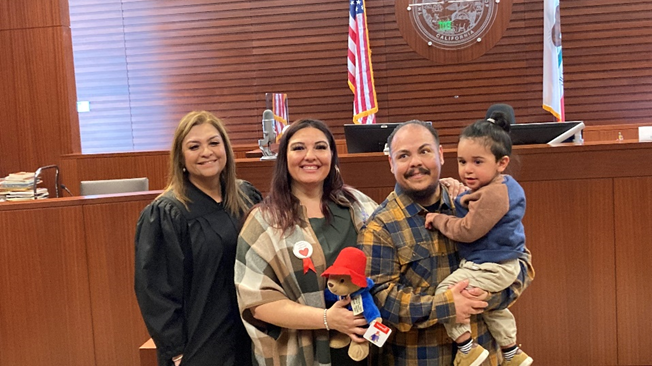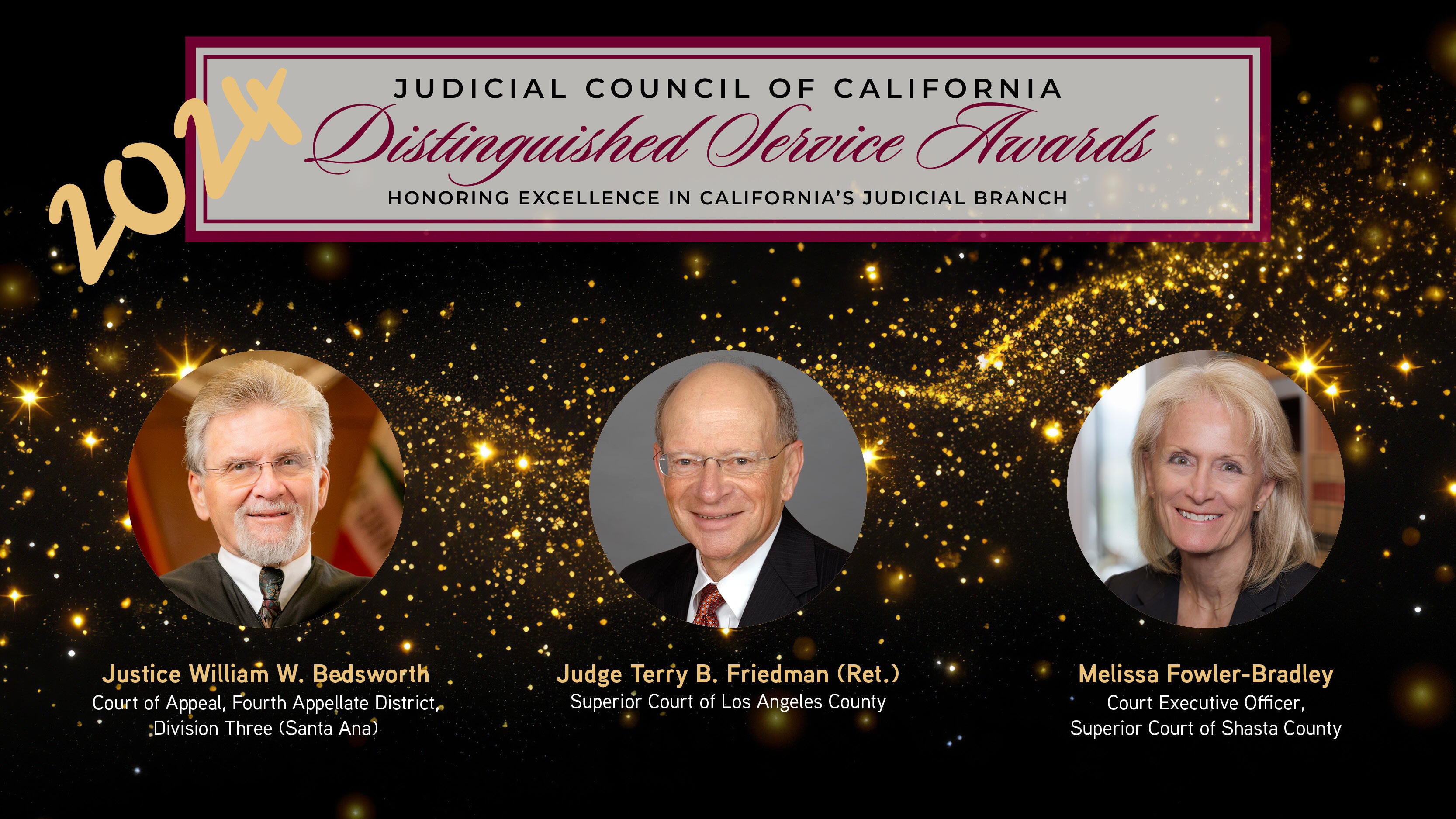Judicial Council Simplifies Process for Adoptive Parents and Recognizes Court Adoption and Permanency Month
SAN FRANCISCO—The Judicial Council at its Nov. 15 business approved the adoption of one new form and revising six forms to simplify, clarify, and provide additional guidance necessary during the adoption process for all adopting parents, and their counsel if represented.
The newly approved forms reflect input of staff attorneys at court self-help centers, court clerks, judicial officers, adoption lawyers, and the California Department of Social Services. The self-help center staff and court clerks pointed out the numerous continuances required when self-represented litigants arrived at court without the statutorily required pleadings and documents.
“In my prior life, I sat as the judge that handled all adoptions in Ventura County,” said Justice Tari L. Cody, cochair of the council’s Family and Juvenile Law Advisory Committee. “It was not unusual for parties to come to court for an adoption hearing, and for me to have to say, ‘I don’t have everything I need.’ User-friendly forms greatly improve the efficiency of the court, decreases wait times, and allows people to spend less time in the courthouse.”
The revised “How to Adopt a Child in California” form now clarifies the specific procedures necessary to finalize distinct types of adoptions, including adoptions of children of Native American ancestry. The form also provides links to adoption resources available on the Self-Help Guide to the California Courts.
The council also approved a new form specifically designed for stepparent adoptions, including those filed to confirm parentage. The self-help center staff identified stepparent adoptions as both the most common adoption types for which they provide assistance and the ones having the most confusing processes for self-represented litigants. Watch
Council Recognizes Court Adoption and Permanency Month
In addition to approving new adoption forms, the council acknowledged Chief Justice Patricia Guerrero’s proclamation that November is Court Adoption and Permanency Month. Her proclamation by resolution recognizes the ongoing efforts of California’s juvenile courts and their justice partners to provide children and families with access to fair, understandable judicial proceedings leading to timely, well-informed, and just permanency outcomes.
Highlighting the need to provide permanency to older youth, the council also heard from a former foster youth, who shared her long and winding road to adoption and the benefits that stability gave her in finishing her education.
“My foster care experience was marked by a lot of fear, shock, loneliness, and abandonment,” said Caché Raine-Jones. “My adoption as a teenager—I was 12 going on 13—and having the ability to say yes to this woman who had taken me and my sibling in—it was a great experience. I was able to be a kid for the first time and didn’t have to worry about moving and was able to focus on my studies.” Watch
Other Items on Council Meeting Agenda:
Distinguished Service Awards: The council honored the three recipients of its 2024 Distinguished Service Award, which recognizes people and organizations for their extraordinary leadership and contributions to the administration of justice in California. This year’s recipients of the California judicial branch’s highest award are Justice William W. Bedsworth, Judge Terry B. Friedman (Ret.), and court executive Melissa Fowler-Bradley. Watch
Using Plain Language for Juror Oaths: The council approved a proposal to use understandable plain language for the oaths administered to jurors and prospective jurors to ensure they fully understand them before voir dire and prior to being seated for a jury trial. Using plain language aims to improve comprehension by jurors and prospective jurors and align with other plain-language jury instructions used by the California judicial branch. Watch
Report on How Defendants’ Race and Ethnicity Affects Criminal Case Outcomes: The council received a statewide report that describes and analyzes patterns seen in criminal case dispositions of adult felony arrests by race/ethnicity and tests whether any available legal or demographic information can account for the observed patterns. Analyzing data for 2021 and 2022, the report found the strongest influence on outcomes were the defendant’s prior criminal record, characteristics of the current offense, and jurisdiction in which the crime was committed. Watch
Third-Party Uses of Court Facilities: The council approved a policy to establish guidelines for the use of court facilities by third parties, including long-term occupancies, short-term events, civics education initiatives, and commercial and vendor services. The Third-Party Use Policy establishes guidelines for the respective roles of the Judicial Council and courts, the delegation of responsibility to the courts over civics education initiatives, the application process, the requirements for approving requests, the required agreement, and the assessment of fees for third-party uses of court facilities. Watch
Legislative Priorities for Judicial Branch: The council approved the types of legislation it should support to increase access to justice for court users, which includes stable and reliable funding, remote access, availability of verbatim records of court proceedings, operational efficiencies, and increased security to safeguard personnel, the public, and court systems from physical, online, and cyber threats. Watch
The complete meeting agenda and council reports are posted to the California Courts Meeting Information Center--an archived webcast of today’s meeting will be posted to the center as soon as it is available.



